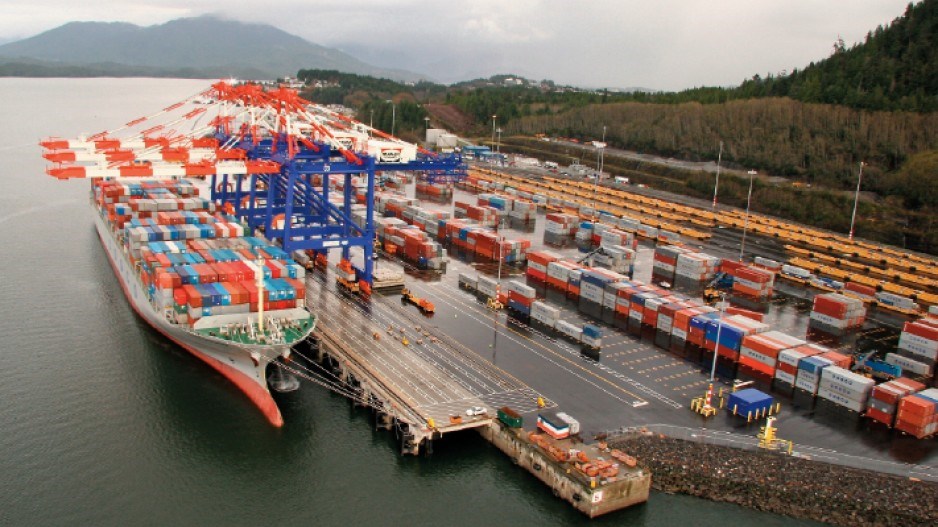Things are looking up for British Columbia’s economy — so much so that economists are predicting it’s possible that B.C. could lead economic growth in Canada over the next couple of years.
“Conditions are becoming more favourable for B.C. to grow at a faster pace,” said Helmut Pastrick, chief economist for Central 1 Credit Union.
“It’s very likely to be growing at a faster pace than the rest of Canada.”
B.C. Finance Minister Mike de Jong met with the province’s 14-member economic forecast council December 5. The council is forecasting B.C.’s GDP to grow 2.3% in 2014 and 2.7% growth in 2015 and 2016. Those numbers are unchanged from a previous forecast in January 2014.
Over the next two years, British Columbia’s economy is expected to be buoyed by rising exports and a lower Canadian dollar. The United States has seen its economy improve dramatically over the past few months, and that will benefit B.C. exporters, Pastrick told reporters following the meeting.
The establishment of a liquefied natural gas industry remains a question mark. Two potential proponents, BG Group Canada and Petronas, have recently said they will delay final investment decisions because of questionable market conditions.
“The latest announcement [from Petronas] suggests there is a higher level of uncertainty than there was before,” Pastrick said.
However, demand for LNG is expected to remain strong, especially in Asia, Pastrick said. He has included two LNG projects in his forecast for the next five years.
The slowing Chinese economy is another area of risk for B.C.’s economy. Economic growth in China has slowed to point that government officials there have recently introduced economic stimulus measures like lowering interest rates and making it easier to obtain credit.
But while China’s economy is not expected to regain the meteoric growth it once had, it should “show firmer numbers” in the future, Pastrick said.
“The days of 8 to 10% growth are behind [China],” Pastrick said. “In the future, we should expect to see more like 5 to 6% growth.”
The near-recession conditions in Europe won’t directly affect B.C.’s economy, but they do affect China because that country exports many of its products to Europe, Pastrick said.
While low oil prices are a blow to federal government revenues, they are expected to benefit B.C.’s economy because the province is a net importer of oil.
The council’s projections are used in the government’s budgeting process. The next provincial budget will be introduced in February of 2015.
@jenstden




